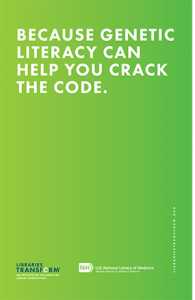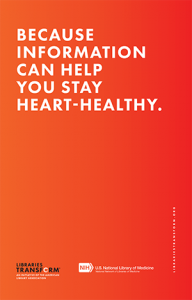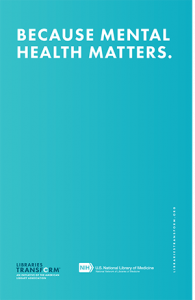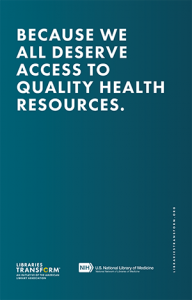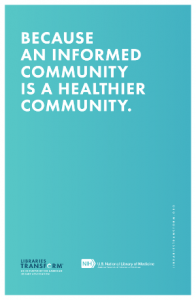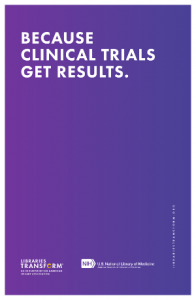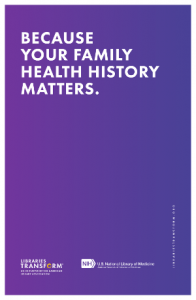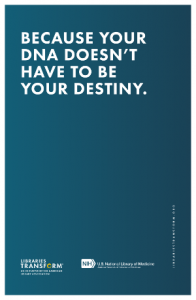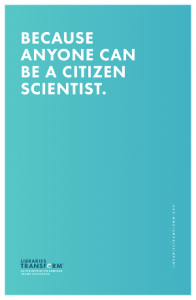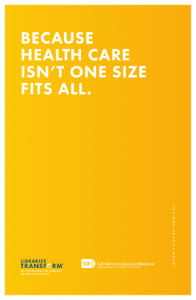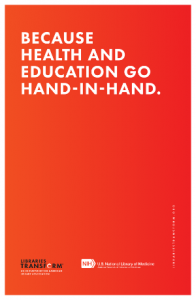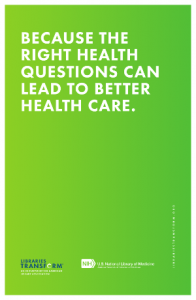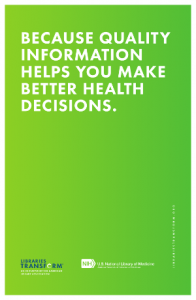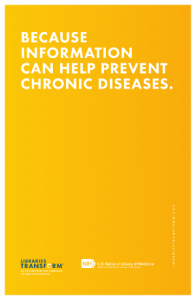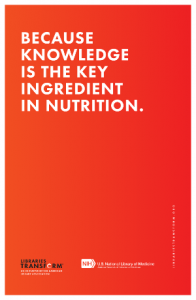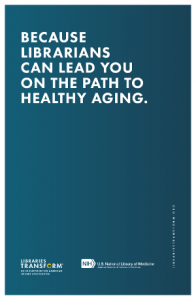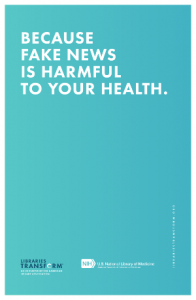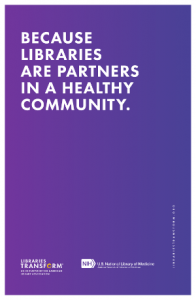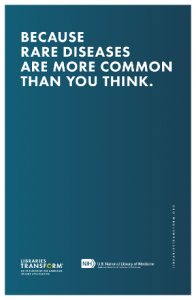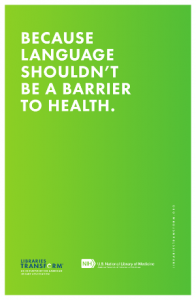Health Literacy Toolkit
October is Health Literacy Month. The National Network of Libraries of Medicine (NNLM) and The American Library Association (ALA)’s Libraries Transform campaign have partnered to create a free toolkit for raising awareness of how libraries support health literacy in their communities.
More than 90 million U.S. adults have low health literacy, which measures the extent to which someone can access necessary health services, as well as how proficiently he or she can understand pertinent health information. Public, school, academic and special libraries play a key role in making quality health information accessible to all; this toolkit will equip library professionals with customizable tools to promote health literacy in October and throughout the year.
Please note: although library staff cannot answer specific questions about medical conditions or treatment options, they can guide their community members to trusted health information so that they can make educated decisions about their health and that of their loved ones.
Know about a resource that should be added to the Health Literacy Toolkit? Email us at campaign@ala.org.
BECAUSE STATEMENTS
BECAUSE GENETIC LITERACY CAN HELP YOU CRACK THE CODE.
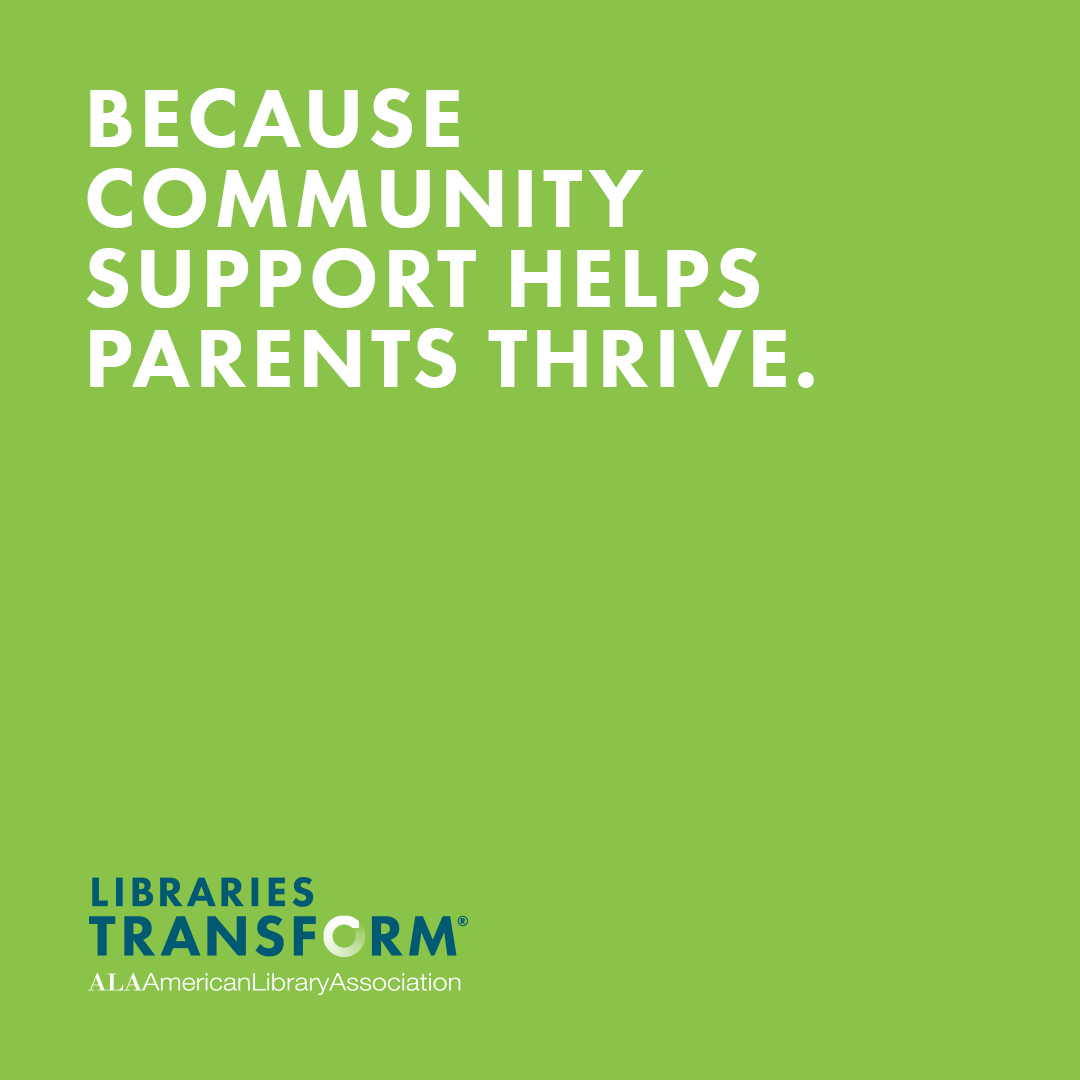
Key Message(s):
Genetic information can help you know your risk for certain diseases. With the increased popularity of at-home ancestry testing, Americans are becoming more and more interested in genetics—but many still have limited knowledge of basic genetic concepts. Libraries are information hubs and education centers that can help their community members access trusted health information, including how to manage genetic risks for inherited diseases.
BECAUSE INFORMATION CAN HELP YOU STAY HEART-HEALTHY.
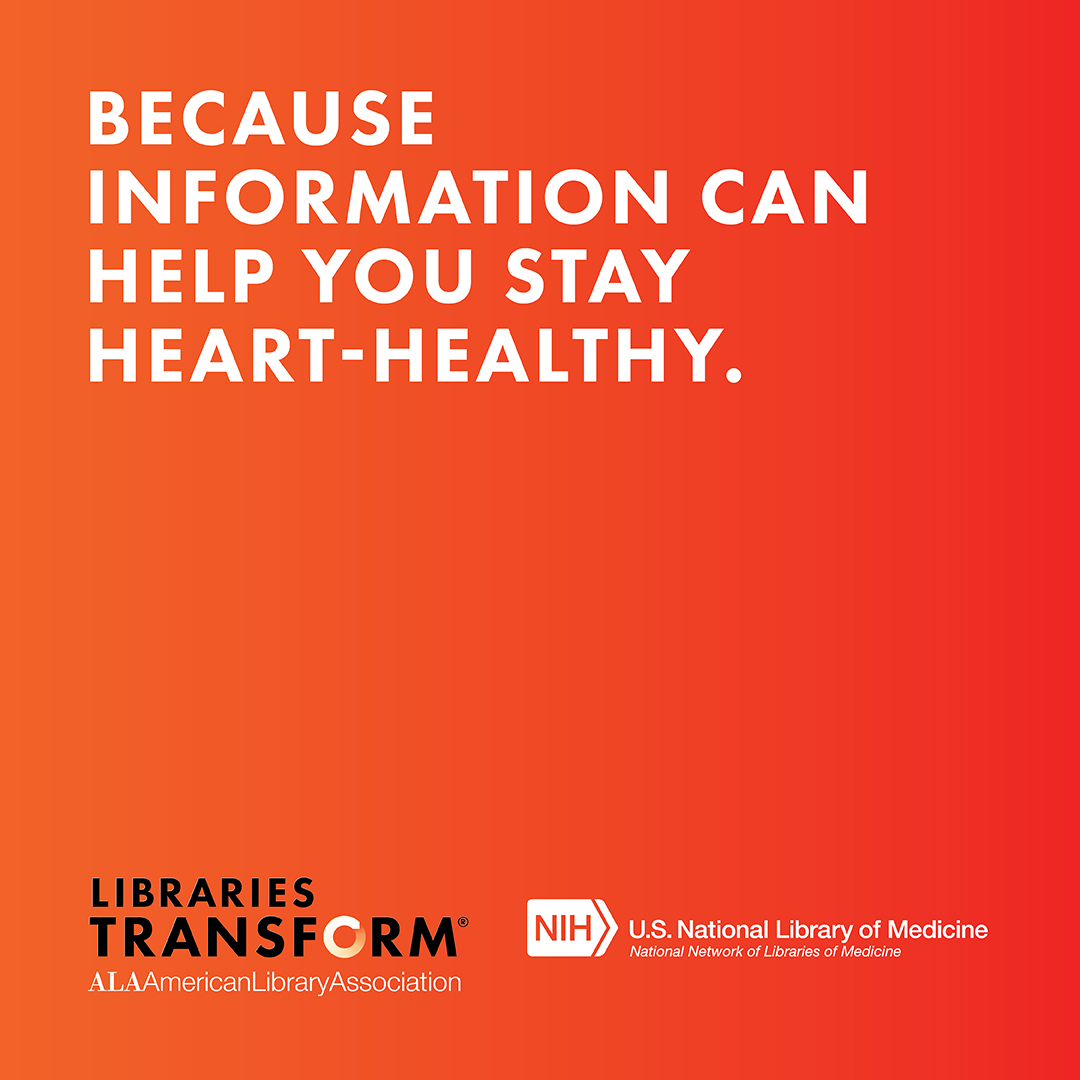
Key Message(s):
Heart disease is America’s leading cause of death. Access to trusted health information from libraries can help people to learn more about the risk factors for heart disease and to discover best practices for staying heart-healthy. Heart disease is an unfortunate reality for millions of Americans, but libraries can play a key role in keeping their communities informed about health and prevention.
BECAUSE MENTAL HEALTH MATTERS.
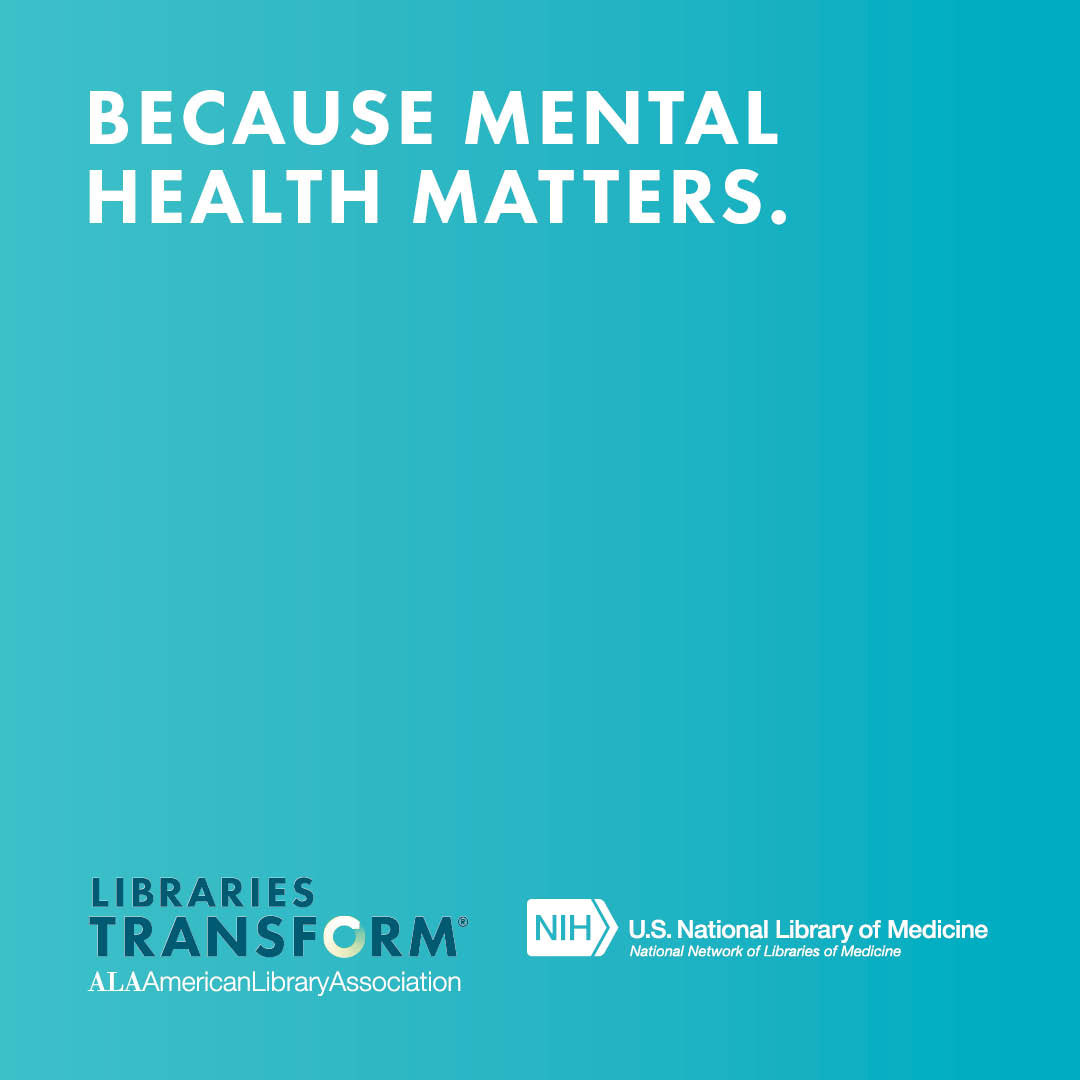
Key Message(s):
We can fight stigma with trusted health information. One in five Americans lives with mental illness, but people struggling with mental health issues still face profound social stigma. Libraries can help by making sure their communities have free and confidential access to resources and information about how to get the help they need.
BECAUSE LIBRARIES WELCOME FAMILIES OF ALL BACKGROUNDS.
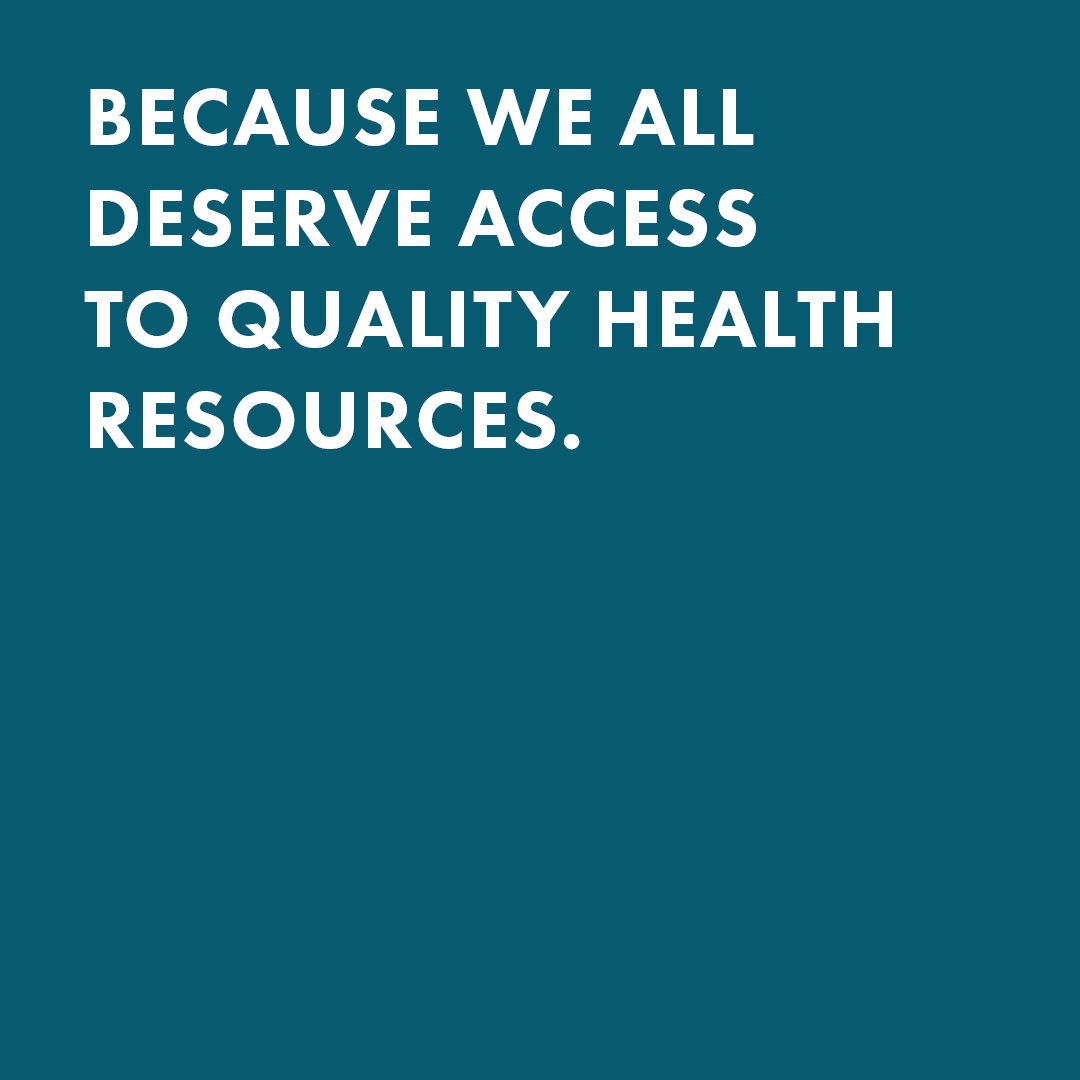
Key Message(s):
The Game of Health is a fun interactive game for public libraries to introduce patrons to trusted health information resources. Patrons will go through five steps of the game to learn ways to prepare, engage, and research health-related information. At the end of the game, patrons count their points and determine if they are a Healthy Sidekick or a Healthy Hero. Following the game, patrons will participate in a discussion and demonstration session to reflect on what they learned and learn how to use the three consumer health resources to take an active role in their health care.
BECAUSE AN INFORMED COMMUNITY IS A HEALTHIER COMMUNITY.
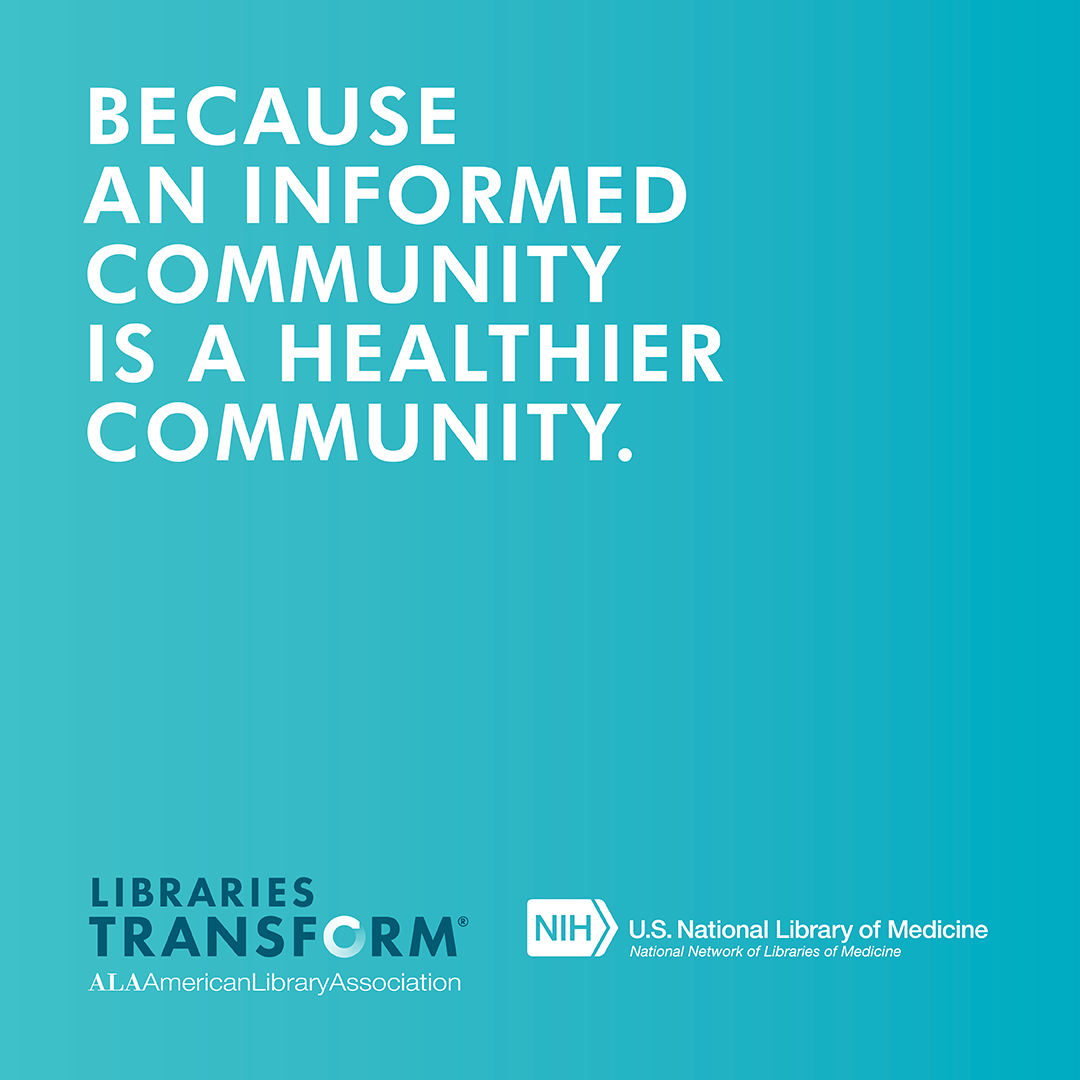
Key Message(s):
Access to trustworthy information leads to better health outcomes. Numerous studies indicate that individuals with high health literacy are more likely to use preventative care and less likely to be hospitalized. Libraries help by providing access to quality health information for library users of all ages. The National Library of Medicine is one agency that produce resources that are freely available and accessible to everyone. This includes access to general health information for patients, their families, and friends.
BECAUSE CLINICAL TRIALS GET RESULTS.
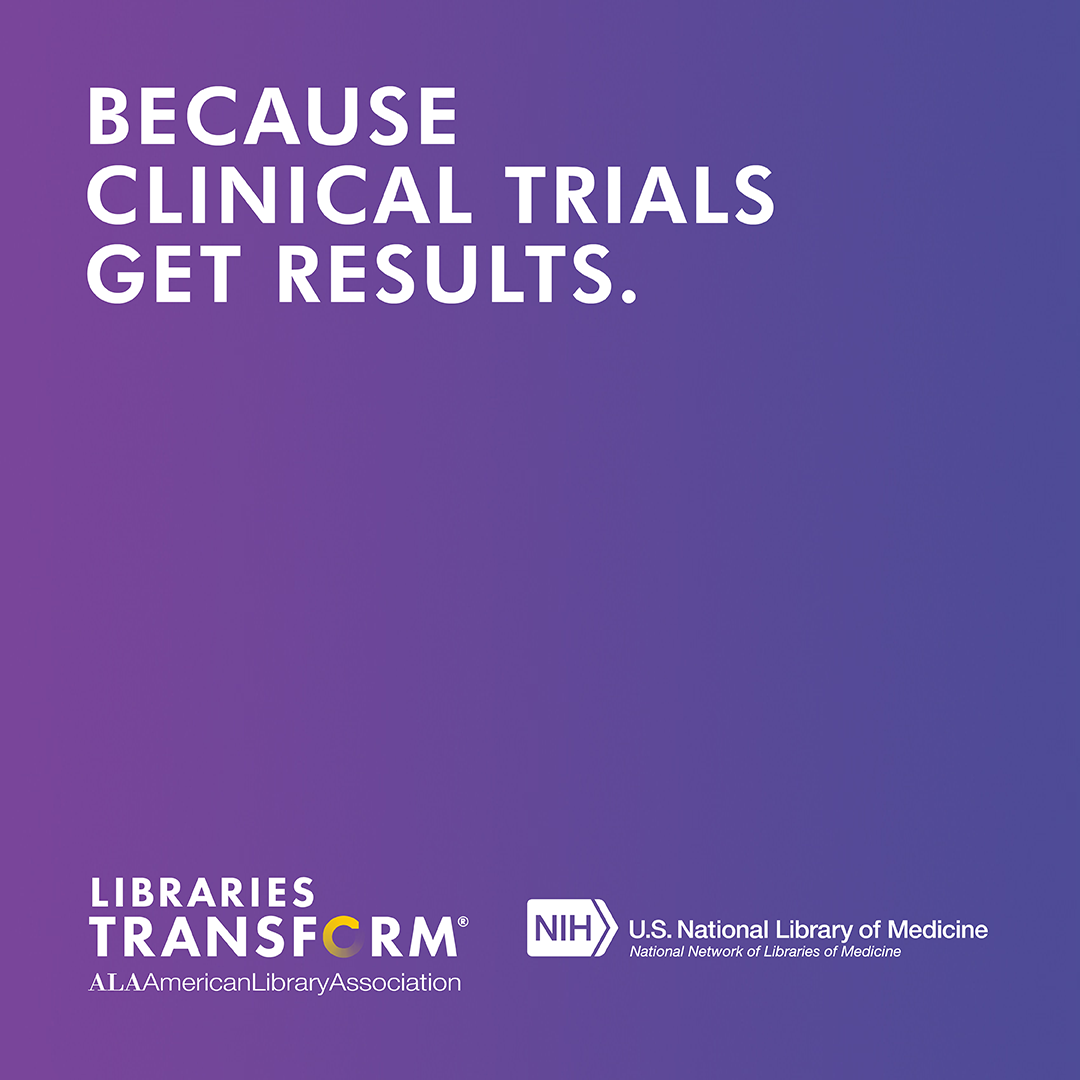
Key Message(s):
Free resources at your library can help you research and act on your family health history. Your doctors can use this information to develop a complete picture of your health and assess your risk factors for disease. Libraries can help you take steps to be aware of how to reduce possible health risks.
The National Library of Medicine provides access to free, easy to understand, and reliable genetic health information. For those interested in “an introduction to fundamental topics related to human genetics, including illustrations and basic explanations of genetic concepts,” visit your local library and ask about the Help Me Understand Genetics resource from the National Library of Medicine.
BECAUSE YOUR FAMILY HEALTH HISTORY MATTERS.
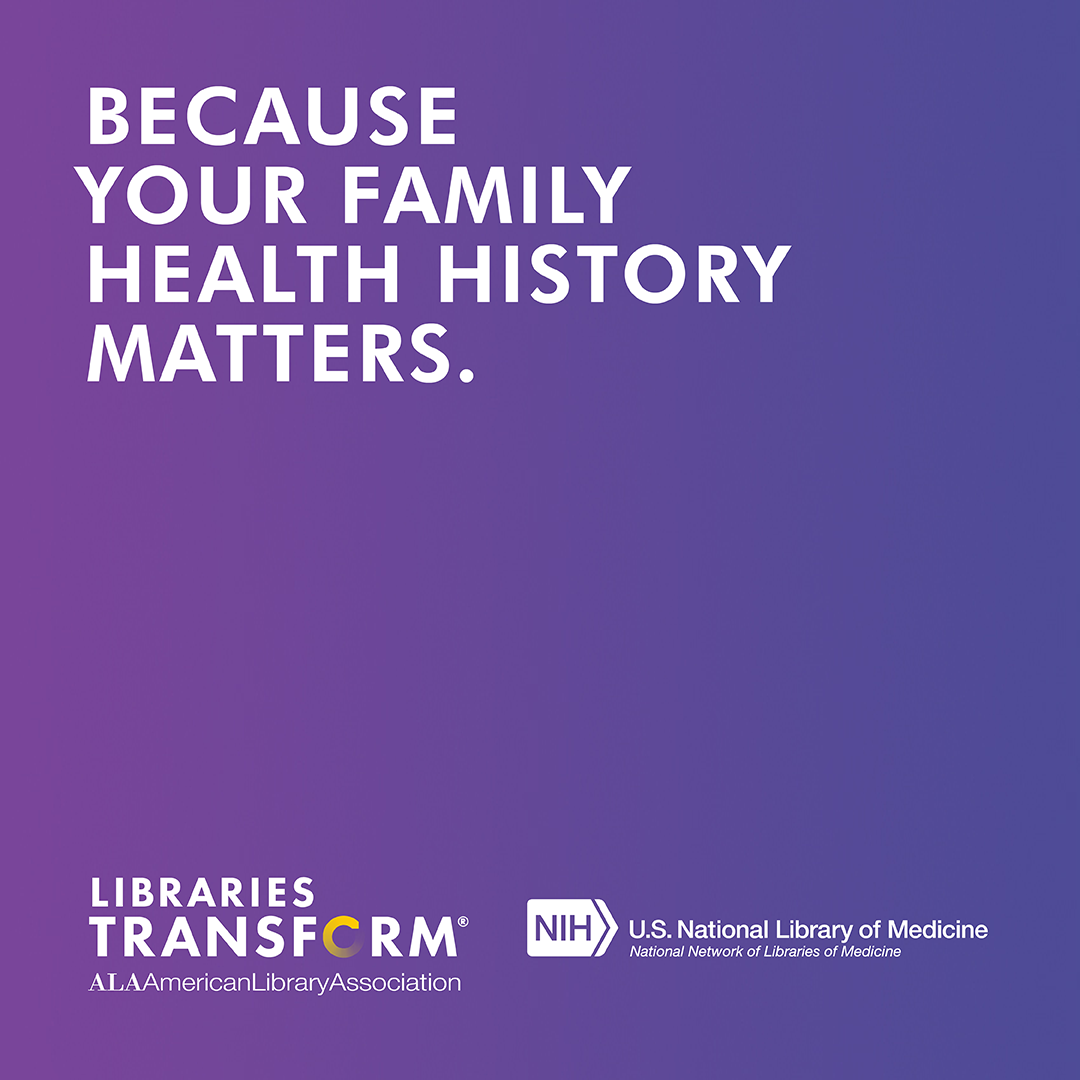
Key Message(s):
Access to trustworthy information leads to better health outcomes. Numerous studies indicate that individuals with high health literacy are more likely to use preventative care and less likely to be hospitalized. Libraries help by providing access to quality health information for library users of all ages. The National Library of Medicine is one agency that produce resources that are freely available and accessible to everyone. This includes access to general health information for patients, their families, and friends.
BECAUSE YOUR DNA DOESN’T HAVE TO BE YOUR DESTINY.
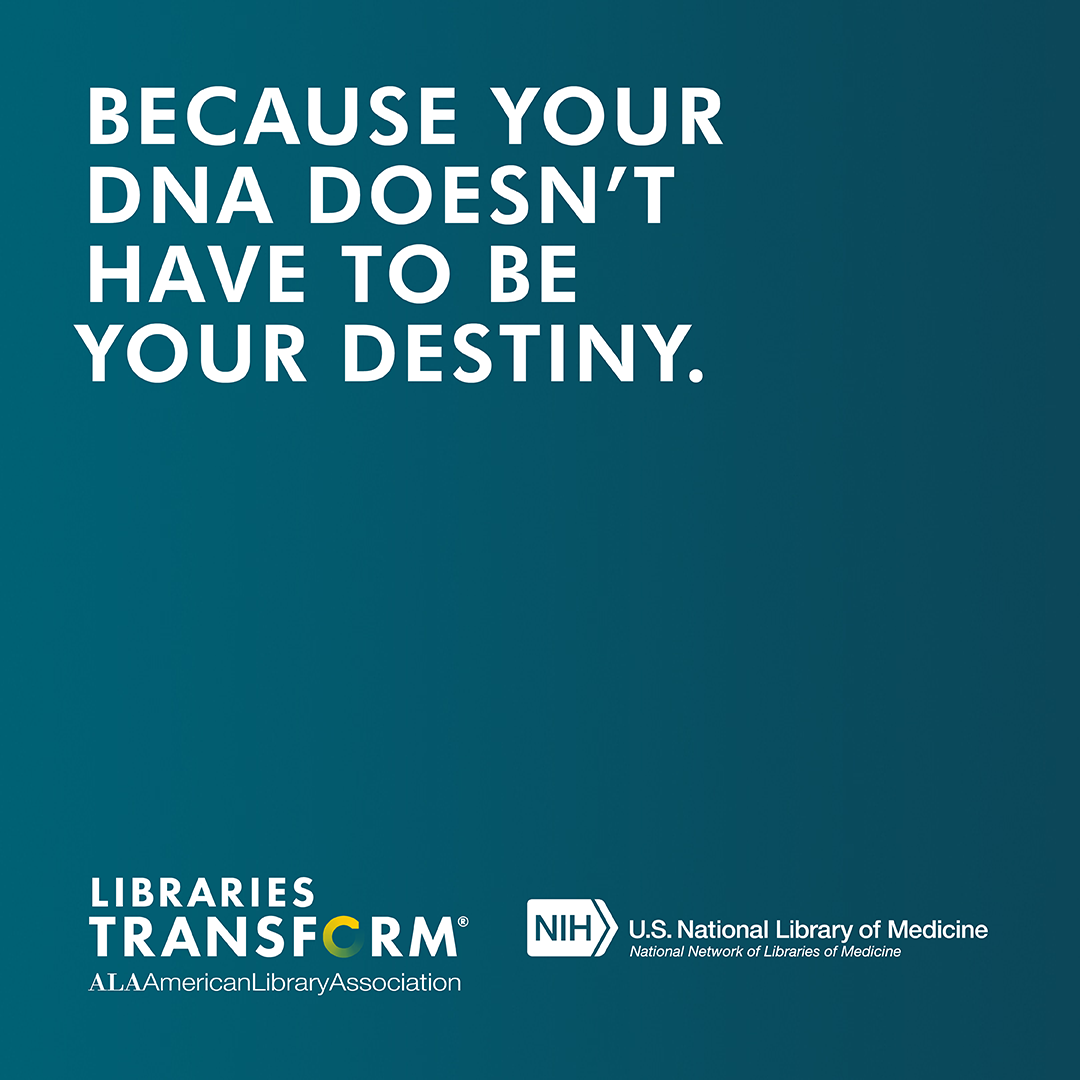
Key Message(s):
74% of Americans are interested in exploring their DNA, and 81% of Americans know that genetic information is important information and that genetics influence the risk for certain diseases. Libraries promote genetic literacy by offering resources, programs, and expertise to interested patrons.
While many members of the public are interested in genetics, many have limited knowledge of basic genetic concepts. Libraries are a crucial resource for making sure people of all backgrounds can develop a better understanding of science, including health and genetics.
Libraries are information hubs and education centers to members of all ages in the communities they serve and can provide access to trusted health information on genetics for simple topics such as nearsightedness to more complicated topics such as specific genetic health conditions to precision medicine from the National Library of Medicine.
BECAUSE ANYONE CAN BE A CITIZEN SCIENTIST.
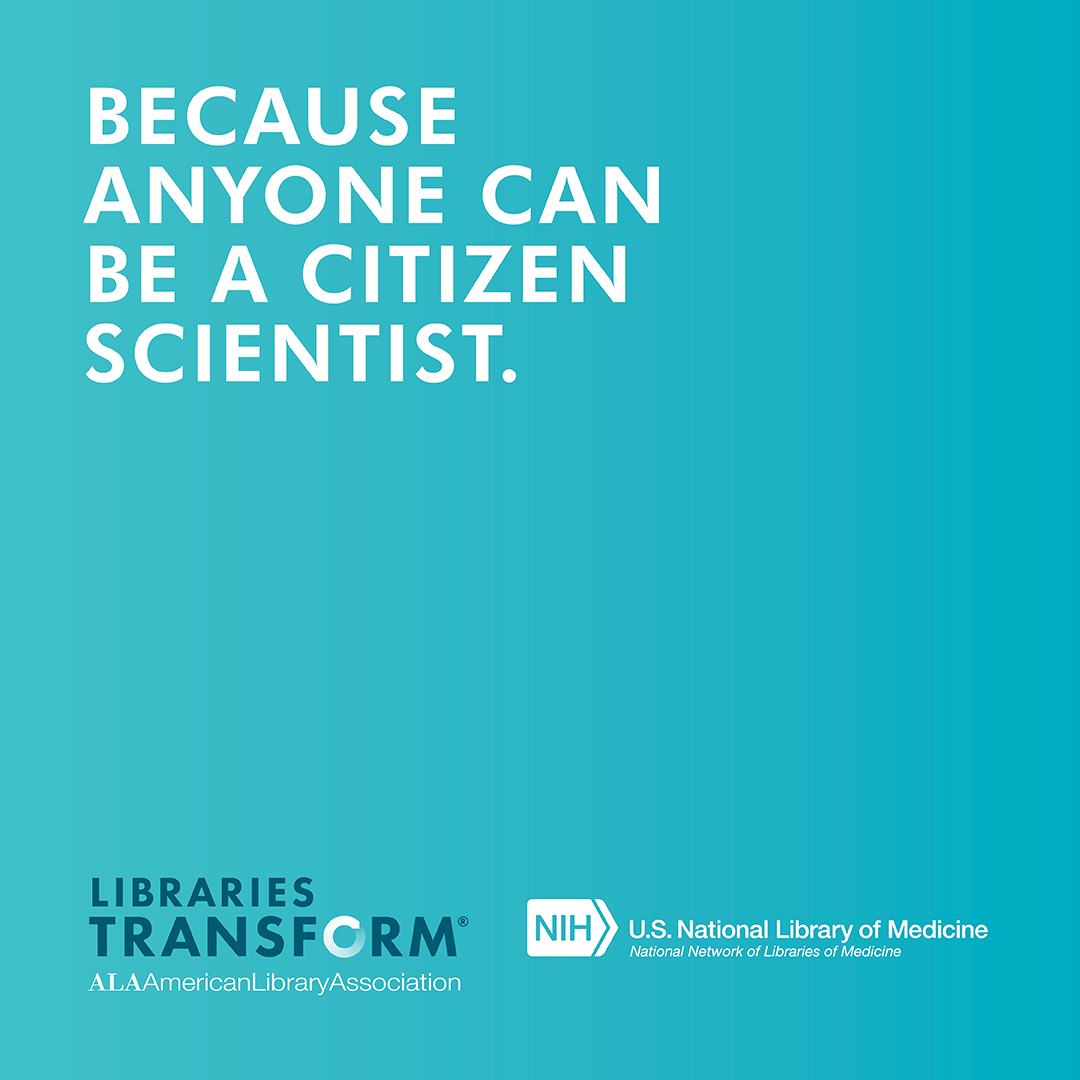
Key Message(s):
Libraries empower their communities to take part in scientific discovery. Everyone has an opportunity to contribute to our understanding of the world we live in by participating in citizen science projects in their communities and libraries.
Citizen science is when members of the public conduct scientific experiments, often working with or under the direction of professional scientists and scientific organizations. Libraries can serve as a hub for citizen science in their communities, mobilizing patrons to get involved in collecting data and spreading the word about their efforts Participants can develop a deeper engagement in scientific and health literacy through their active involvement in the scientific process.
BECAUSE HEALTH CARE IS NOT ONE SIZE FITS ALL.
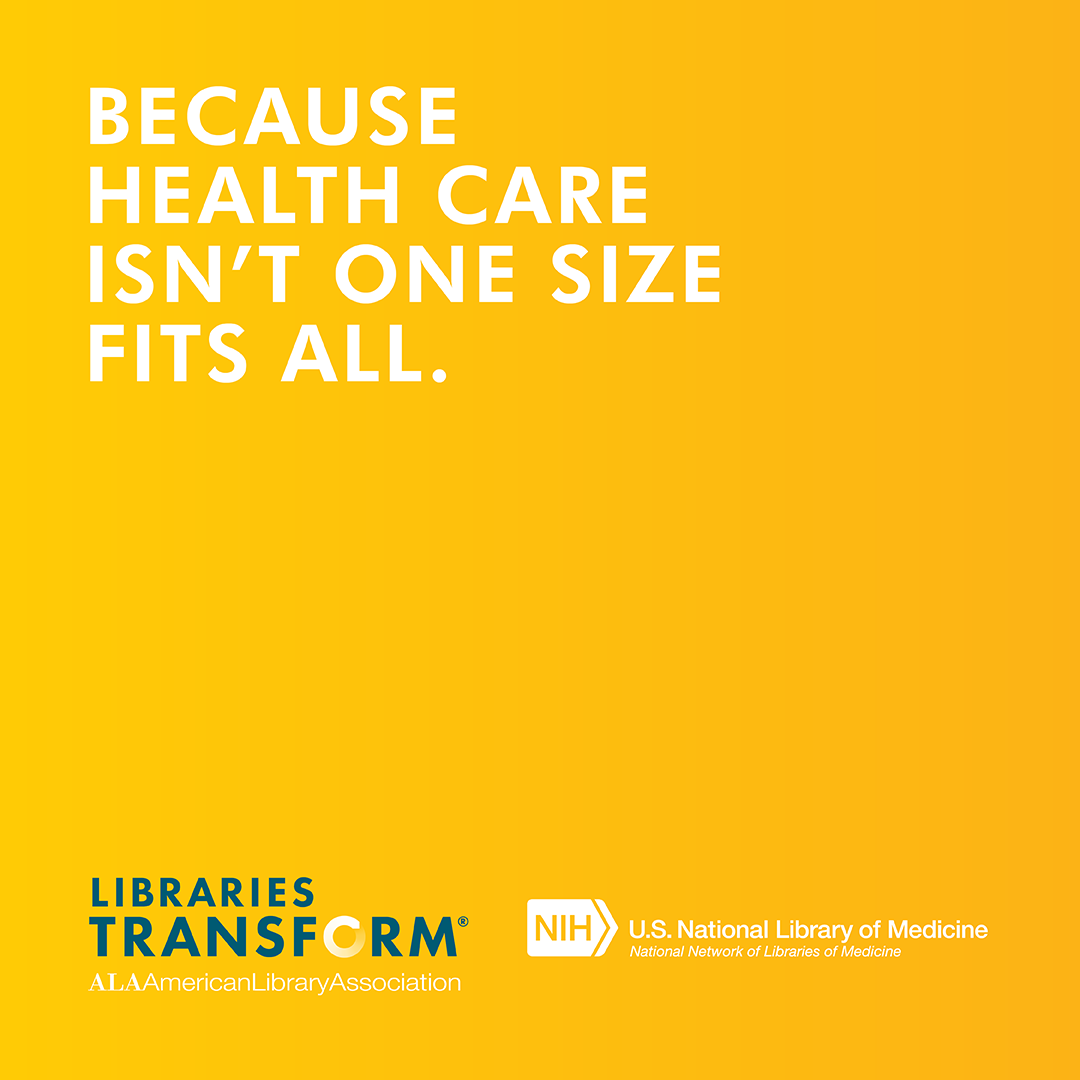
Key Message(s):
Library resources help you ensure your treatment is tailor-made. By promoting health literacy and providing trusted health information, libraries empower their community members to pursue customized medical care tailored to their needs.
MMedical research has not always reflected the diversity of different populations, but precision medicine is "an emerging approach for disease treatment and prevention that takes into account individual variability in genes, environment and lifestyle for each person". Using this approach doctors and researchers can better determine what treatment and prevention strategies work best for different groups of people. Initiatives like the All of Us research program from the National Institute of Health further the push for individually tailored medical care; libraries play a crucial role in promoting this program.
BECAUSE HEALTH AND EDUCATION GO HAND-IN-HAND.
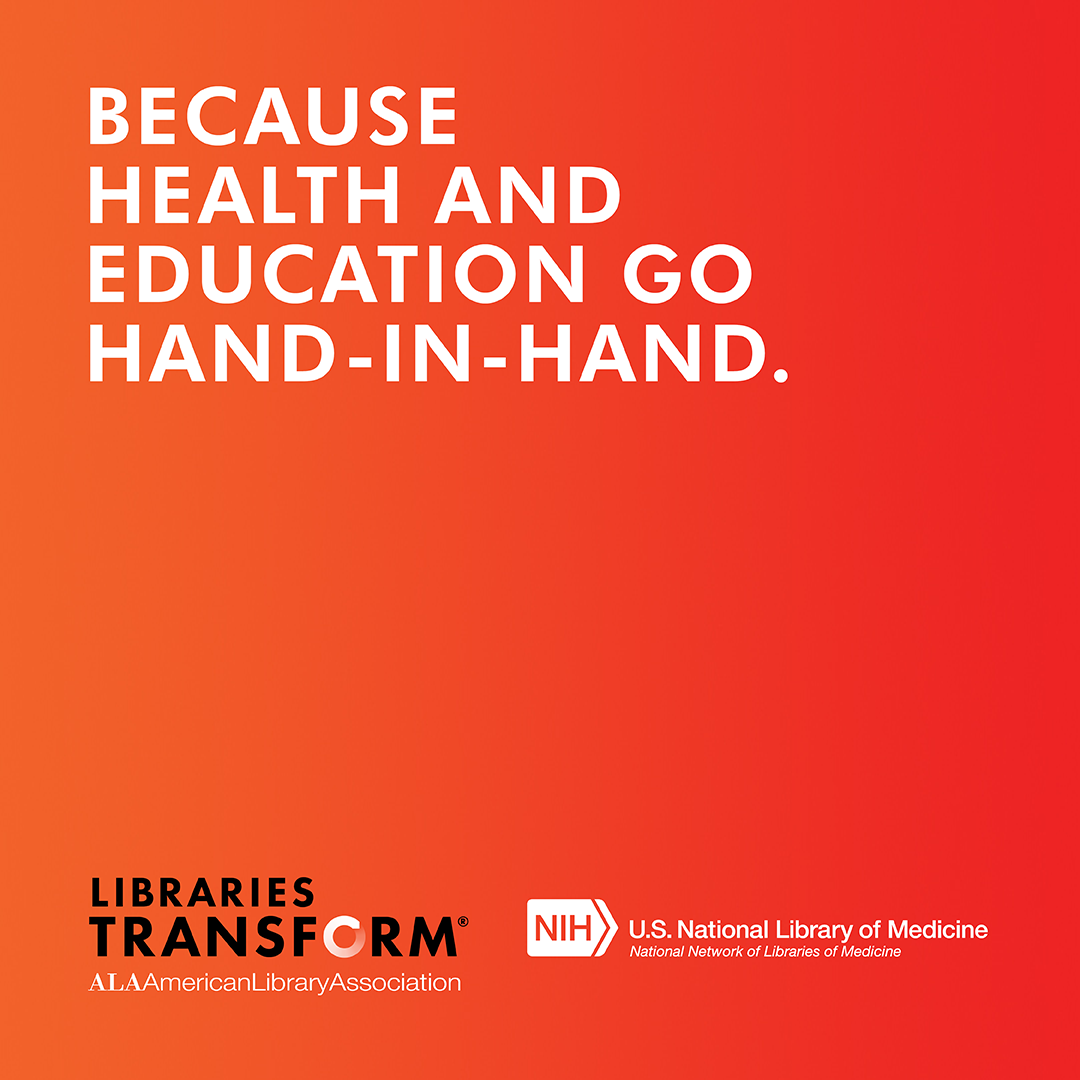
Key Message(s):
Students’ health is linked to academic achievement. Family engagement and health literacy programs at libraries can help students get the information and support they need to succeed in school.
Families with parents with higher health literacy (access to and understanding of quality health information) are more likely to engage in preventative care such a vaccinations and routine screenings. Libraries offer access to quality health care information and resources to help answer health and wellness questions.
BECAUSE THE RIGHT HEALTH QUESTIONS CAN LEAD TO BETTER HEALTH CARE.
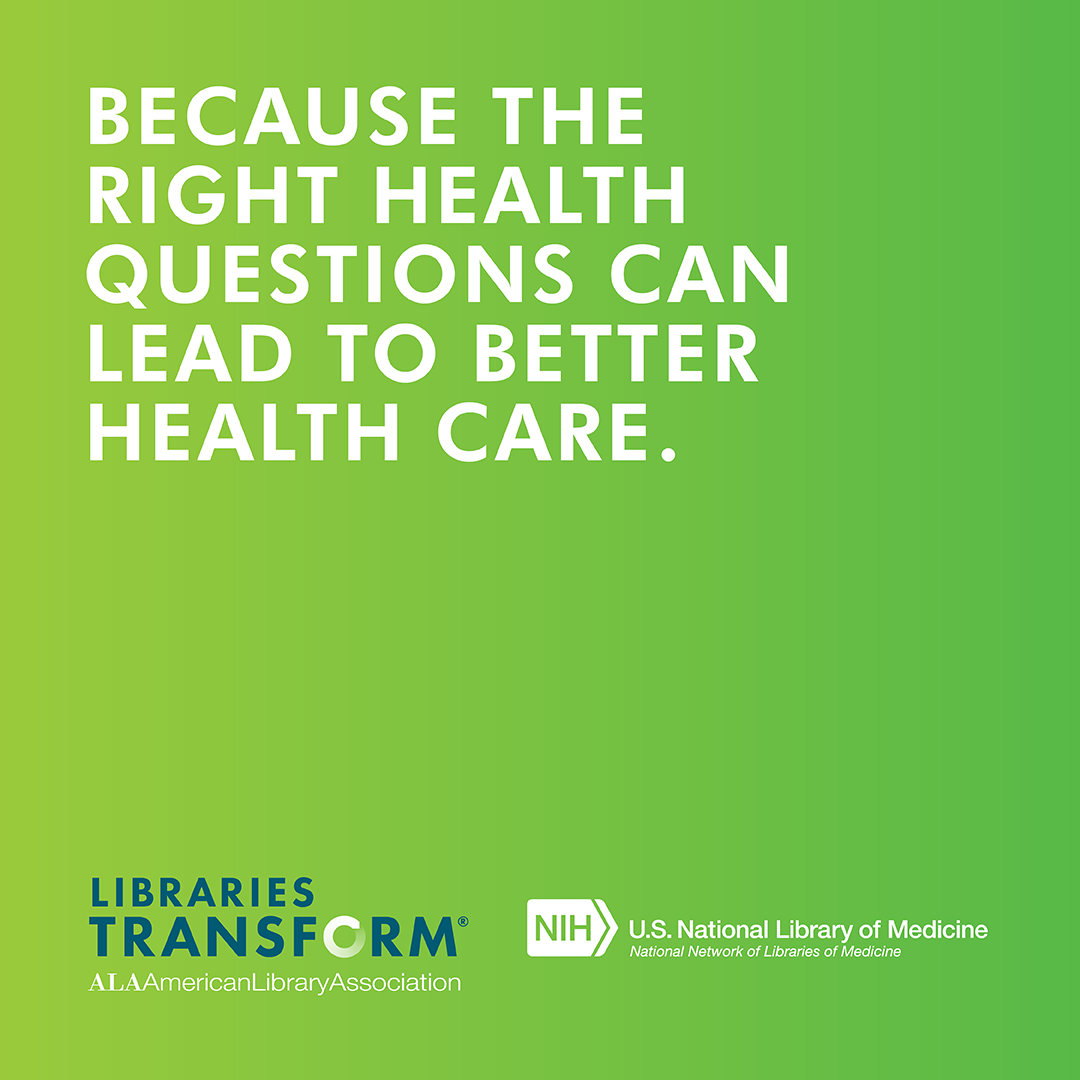
Key Message(s):
Knowing how to communicate with your doctor can improve your treatment. How well you communicate with your doctor is an important part of getting the best health care for you or your loved one. The trusted health resources available at libraries can help you make sure that you understand your diagnosis and treatments.
BECAUSE QUALITY INFORMATION HELPS YOU MAKE BETTER HEALTH DECISIONS.
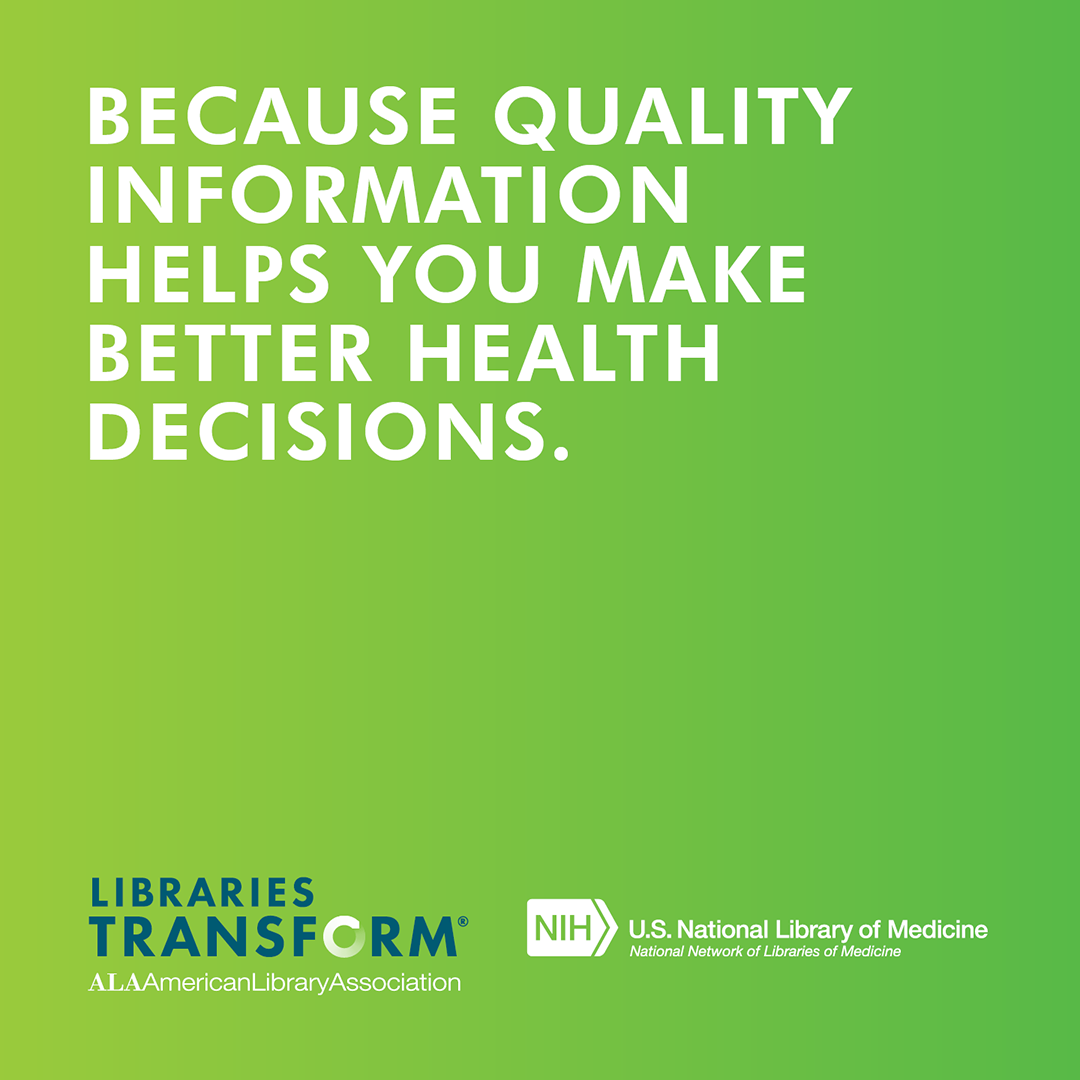
Key Message(s):
As library staff, the role we play is to provide access to reliable and quality health information. Library staff are never expected to diagnose health conditions or interpret the information they find for others. Always recommend that your community members consult with a healthcare provider regarding the information that you provide to them.
The National Library of Medicine (NLM) provides access to quality health information for various populations. The National Network of Libraries of Medicine (NNLM) provides training at no cost to library staff on these health resources. Locate your regional NNLM office.
BECAUSE INFORMATION CAN HELP PREVENT CHRONIC DISEASES.
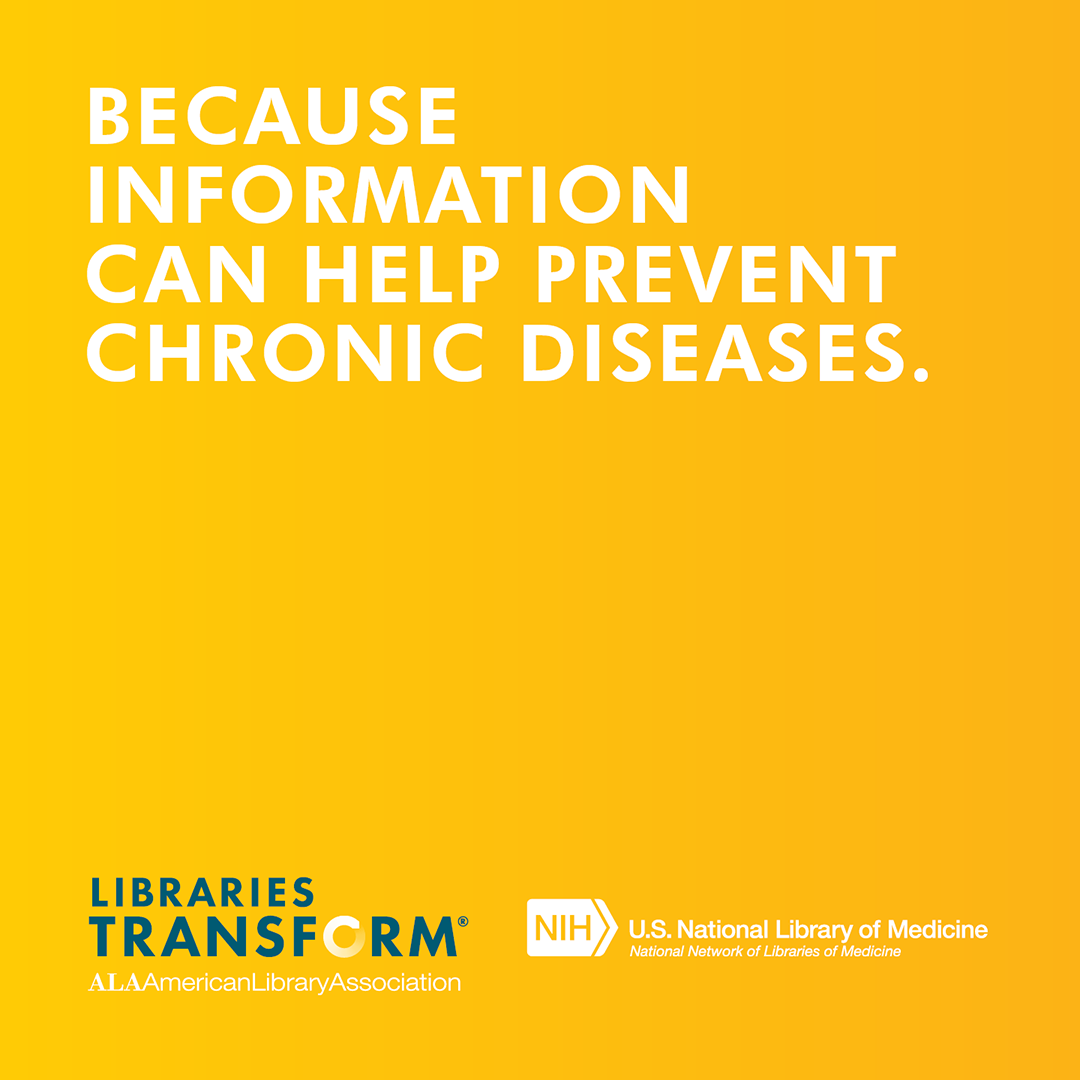
Key Message(s):
Many members of your library community currently live with chronic illness, many of which are preventable. Use this statement to share information on how knowledge is power in the prevention and management of chronic illness.
BECAUSE KNOWLEDGE IS THE KEY INGREDIENT IN NUTRITION.
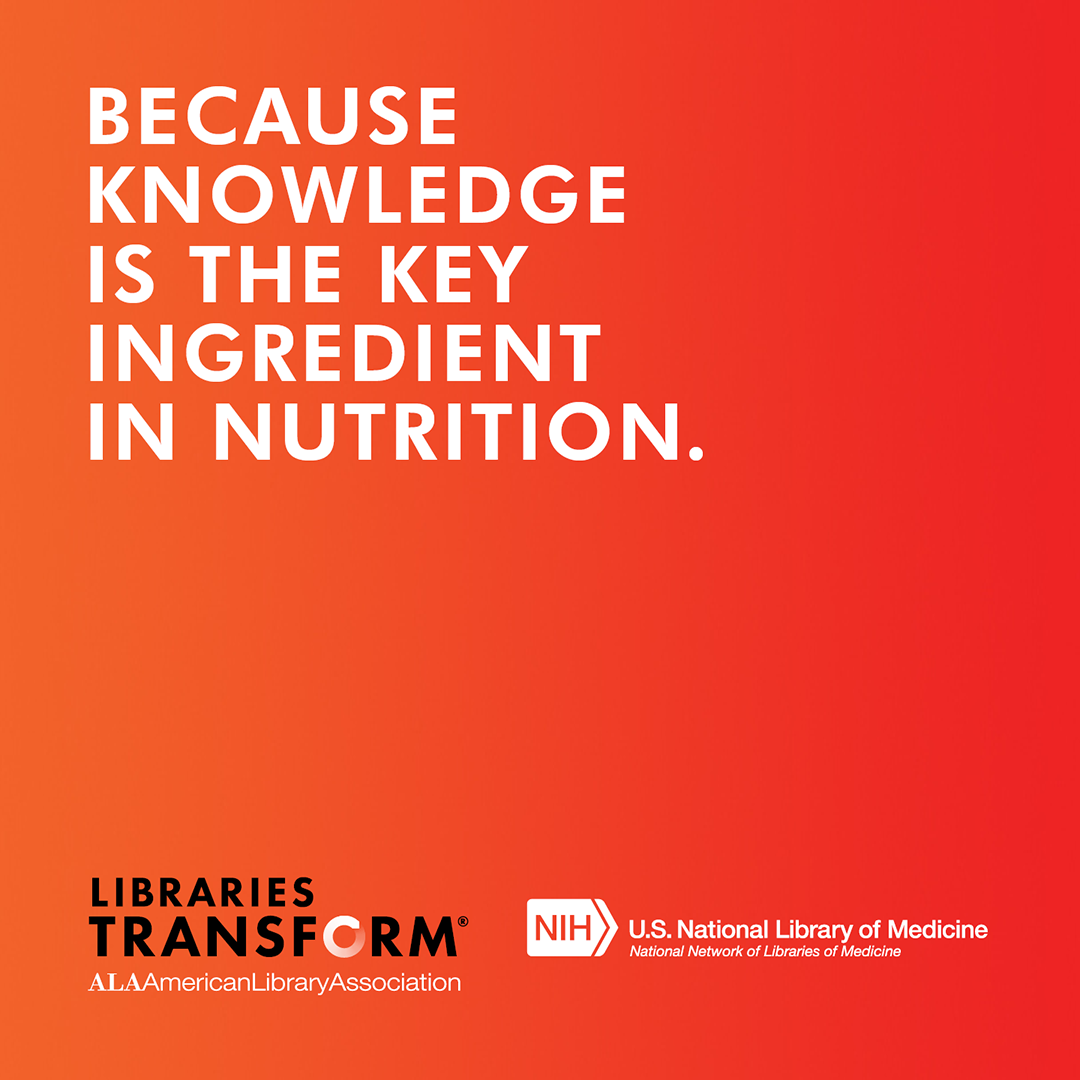
Key Message(s):
Libraries offer a variety of nutrition-based programs, including cooking, gardening, and story times to improve the health of their communities.
BECAUSE LIBRARIANS CAN LEAD YOU ON THE PATH TO HEALTHY AGING.
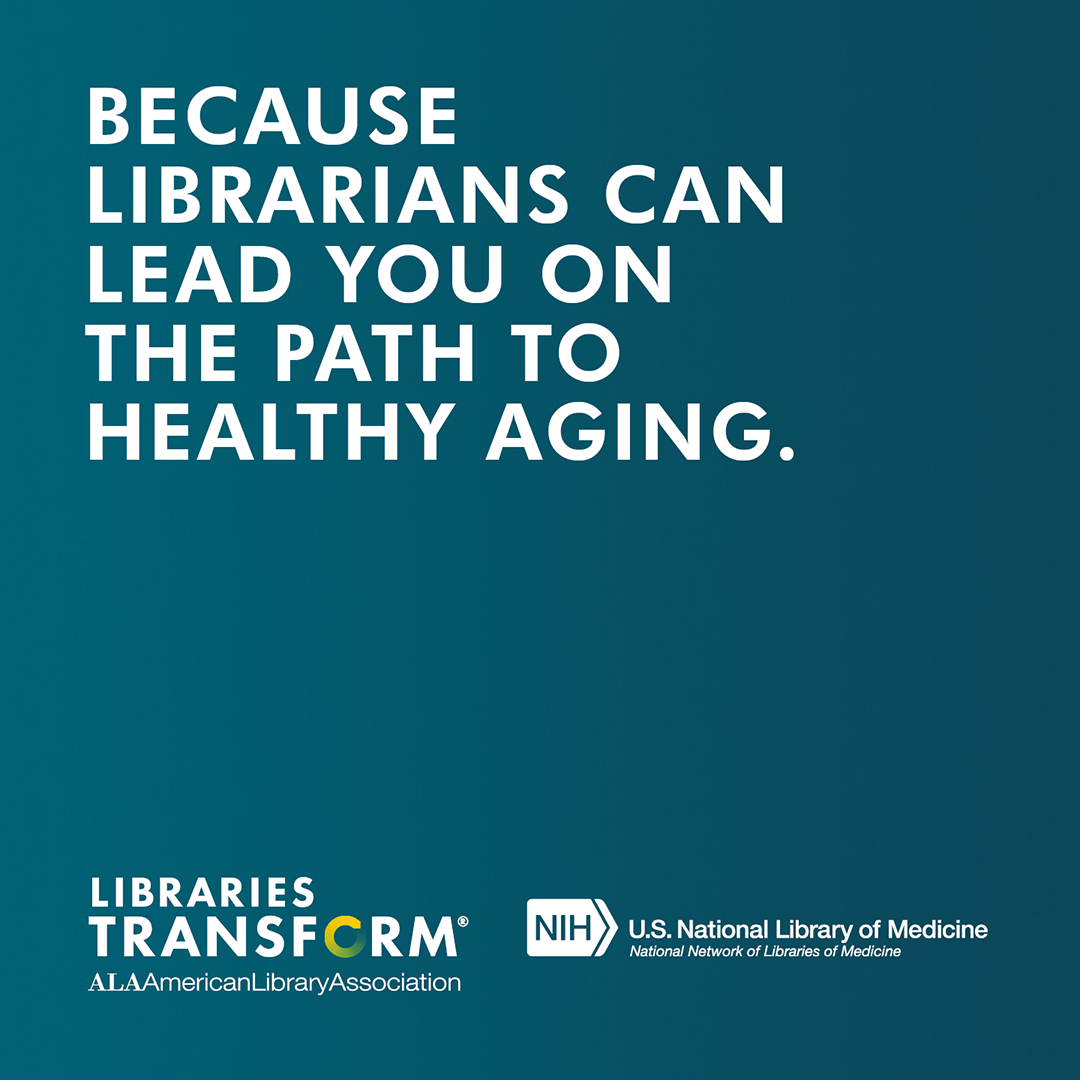
Key Message(s):
As our community members continue to live longer, libraries must find ways to meet the needs of our older adults. Older adults having a space to gather and an opportunity to engage in conversation and activities with each other helps to improve their overall health.
BECAUSE FAKE NEWS IS HARMFUL TO YOUR HEALTH.
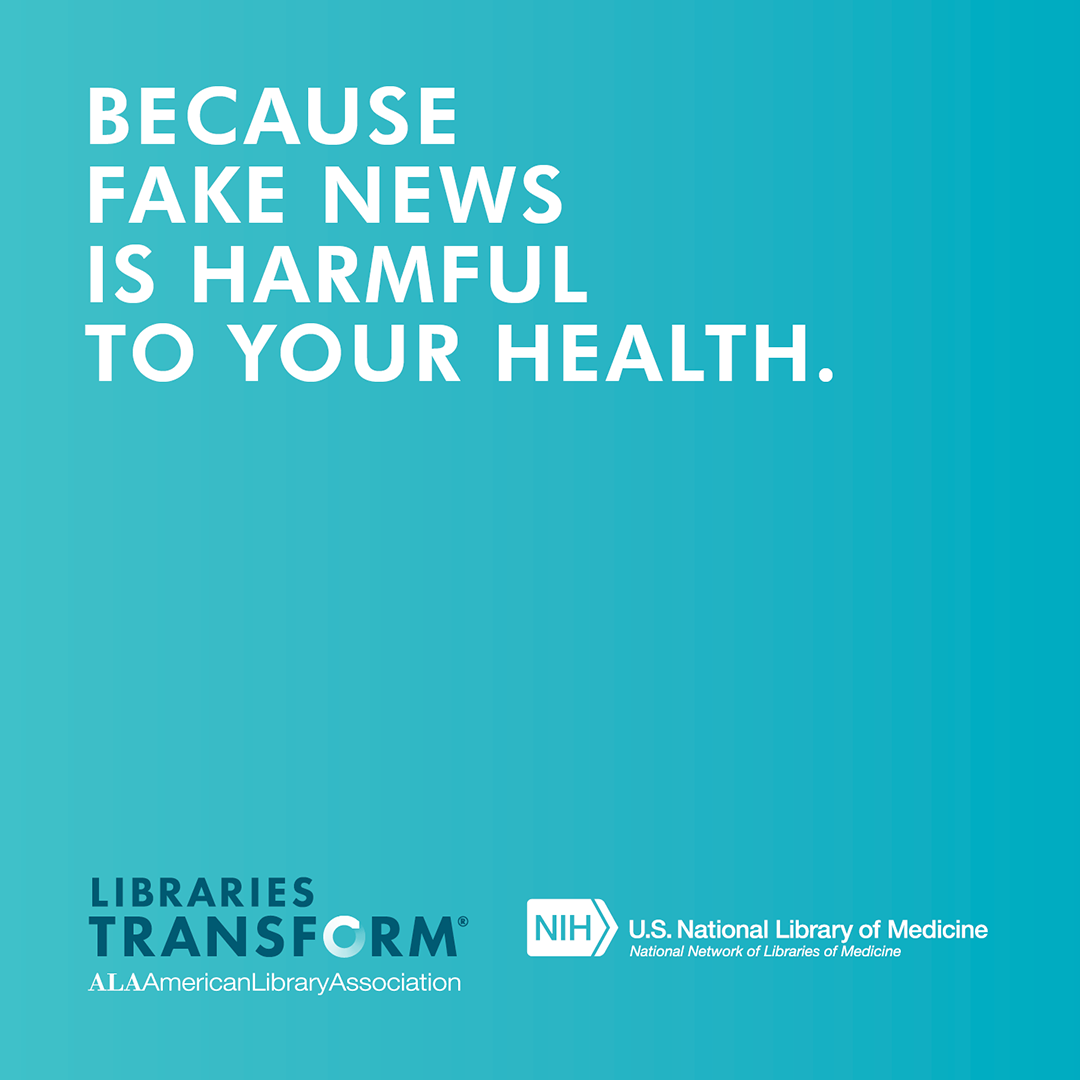
Key Message(s):
Members of our community are constantly being overwhelmed with information regarding diseases/conditions, medications, medical interventions, and much more. Libraries can provide training on how to evaluate health information from mainstream media and other news sources.
BECAUSE LIBRARIES ARE PARTNERS IN A HEALTHY COMMUNITY.
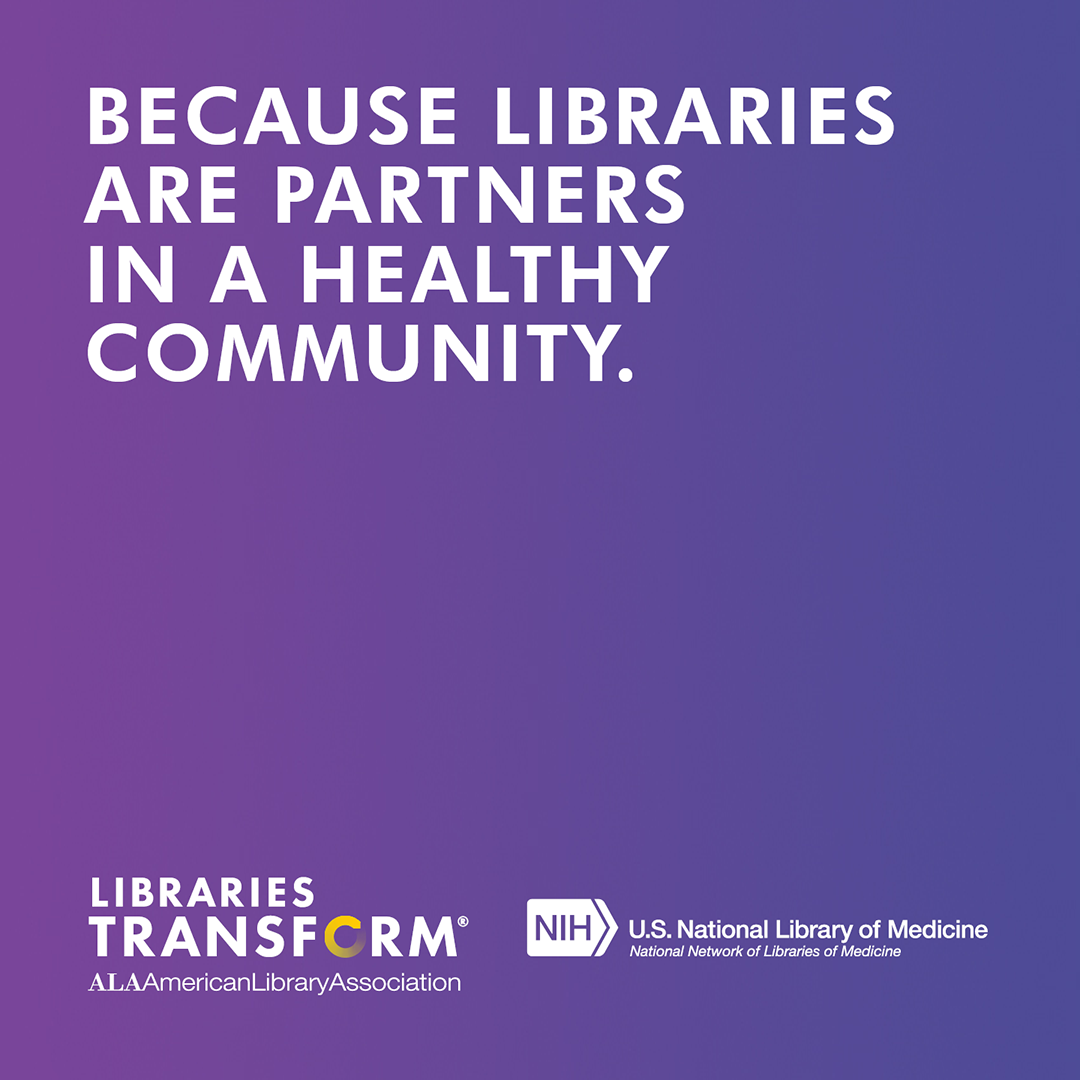
Key Message(s):
In order to make a greater impact in improving the health and wellness of members of their communities, libraries often partner with other agencies.
Libraries are a place for convening meetings and allowing community members to have meaningful conversations and safe havens. As libraries are used to teach new and strengthen existing skills there are opportunities to have library space used as a place to learn.
As libraries go directly into communities to bring high quality information and resources and connectivity such as bookmobiles, access to Wi-Fi internet, pop-up libraries and other technologies.
As communities respond and recover from civil unrest, natural disasters and other emergency and environmental incidents, libraries can serve as a place of community in addition to provision of resources on how to rebuild.
BECAUSE RARE DISEASES ARE MORE COMMON THAN YOU THINK.
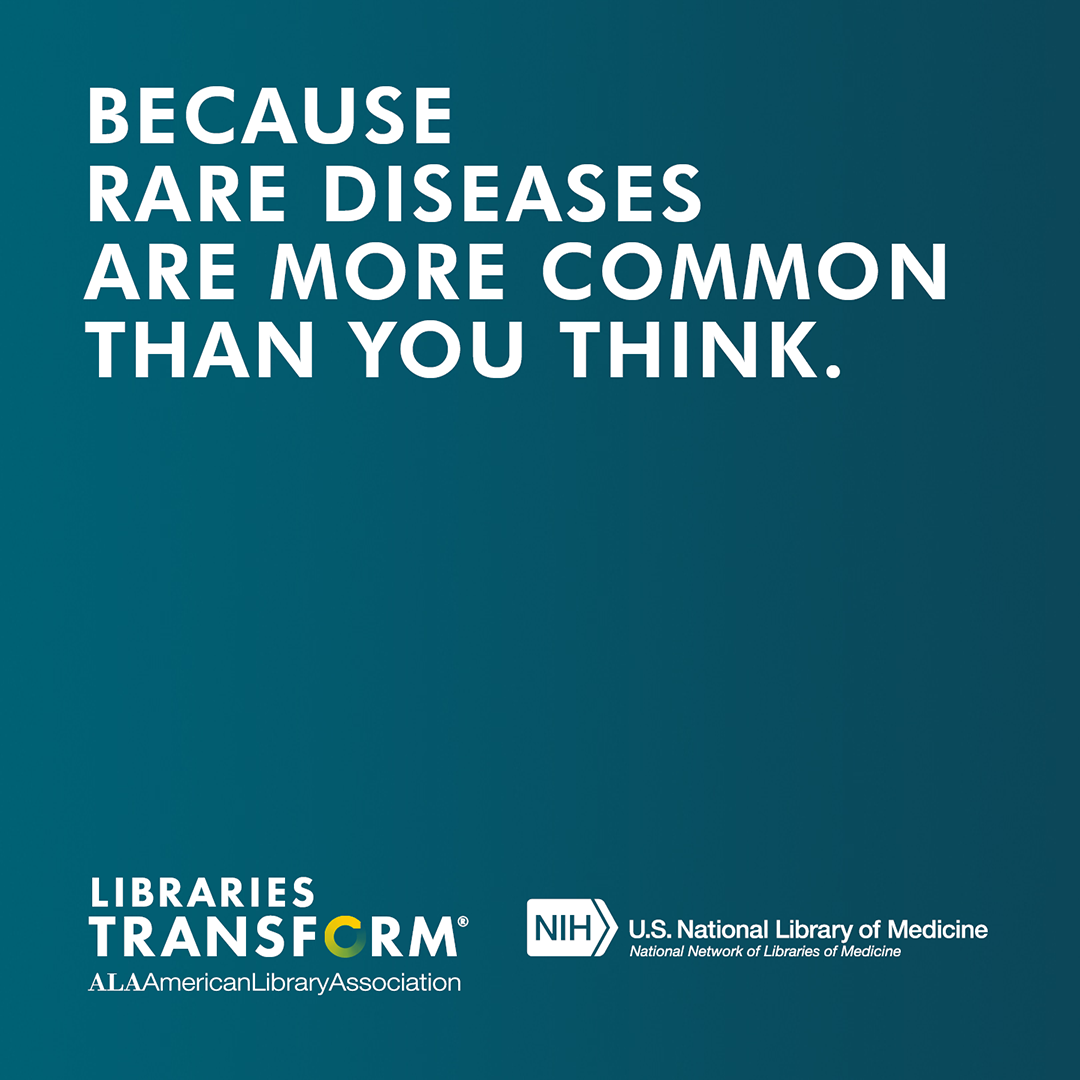
Key Message(s):
With such a high number of individuals across the nation who live with rare diseases, it’s likely that someone in your community has one.
BECAUSE LANGUAGE SHOULDN’T BE A BARRIER TO HEALTH.
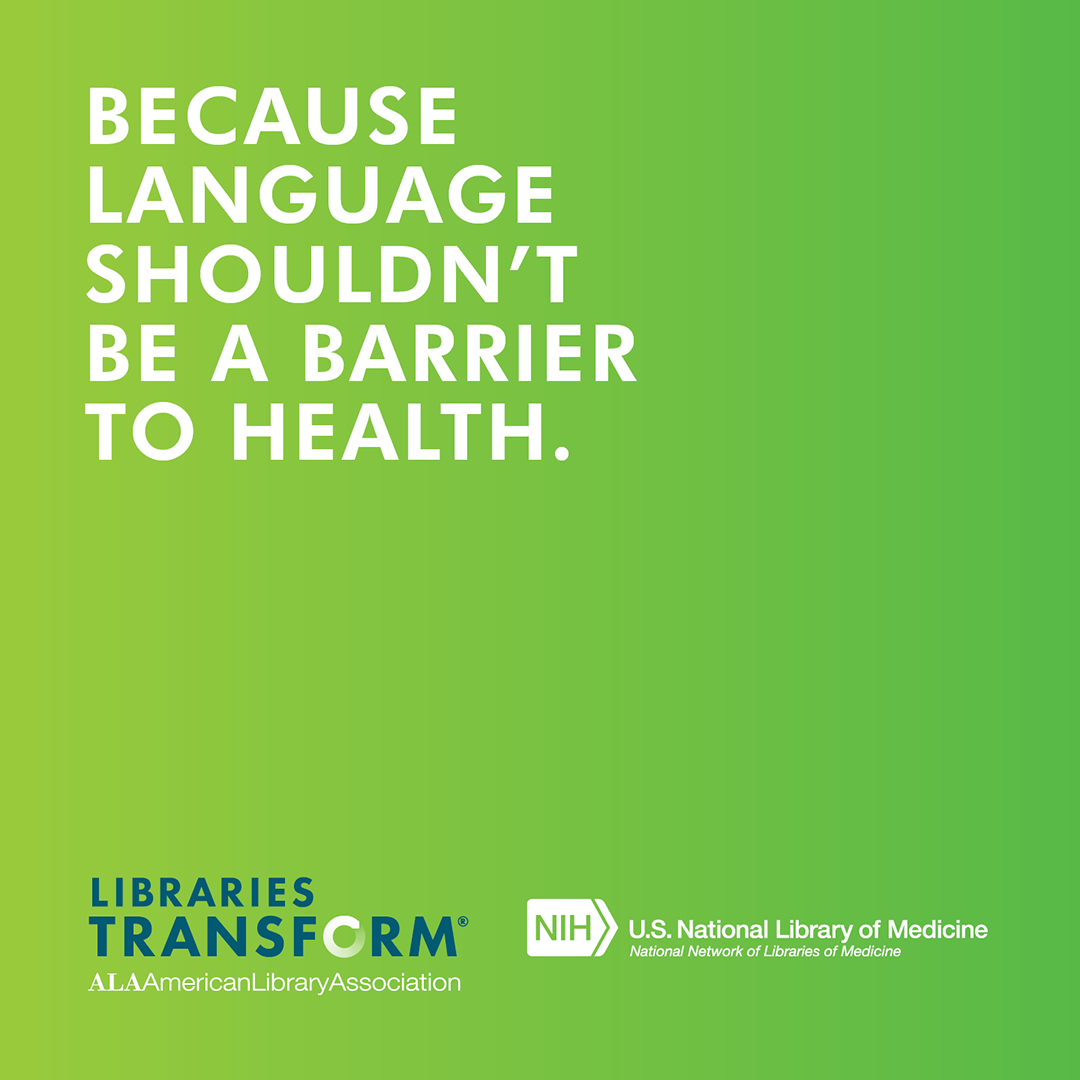
Key Message(s):
With the diverse communities that libraries serve, there could be multiple languages spoken in the physical buildings every day. Access to health information that can be used by multilingual families is important.
BECAUSE AN INFORMED COMMUNITY IS A HEALTHIER COMMUNITY.

Key Message(s):
Access to trustworthy information leads to better health outcomes. Numerous studies indicate that individuals with high health literacy are more likely to use preventative care and less likely to be hospitalized. Libraries help by providing access to quality health information for library users of all ages. The National Library of Medicine is one agency that produce resources that are freely available and accessible to everyone. This includes access to general health information for patients, their families, and friends.
Libraries Transform Logo
Printable version of Libraries Transform Critical Thinking Toolkit (PDF)
Download the Libraries Transform logo and Because statements for print, web or social media.
Low Resolution JPG | PNG | GIF
EPS Vector Files Two Color | Black on White | White on Black | PMS | CMYK


